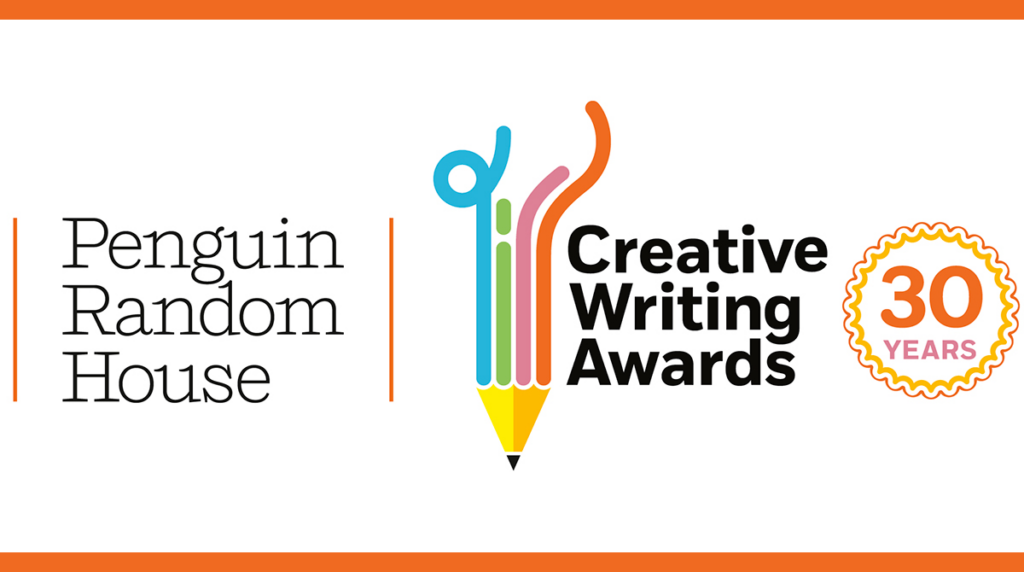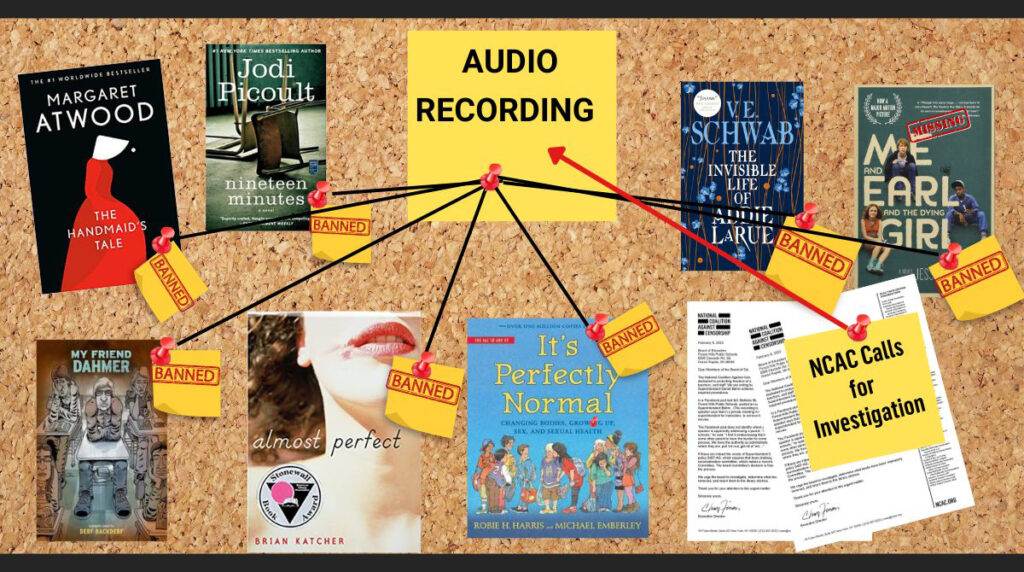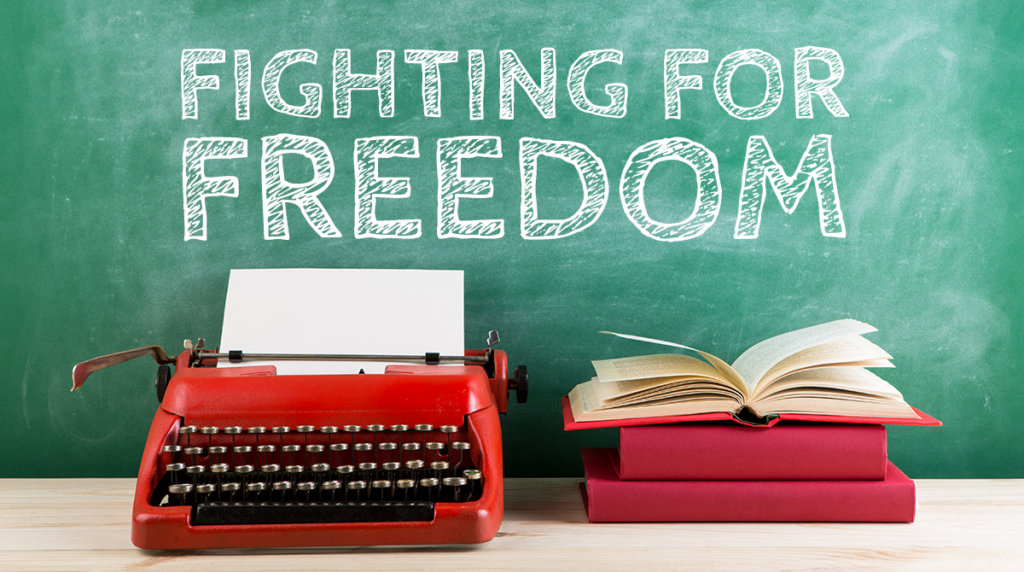This blog post is from Skip Dye of Penguin Random House and Caroline Richmond of We Need Diverse Books, Unite Against Book Bans partners.
Penguin Random House and We Need Diverse Books have partnered to launch the Freedom of Expression Award, providing public high school seniors with scholarships to attend college. High school seniors are invited to apply online through January 16.
How did the idea for the Freedom of Expression Award come about?
PRH: We are passionate about encouraging the next generation of readers and authors and promoting diverse voices and stories. For 30 years, we have supported this mission through the Penguin Random House Creative Writing Awards. This year, in the face of book bans and with attacks on free expression on the rise in America, we wanted to continue our partnership with We Need Diverse Books by launching the Freedom of Expression Award. Applicants are asked to answer the prompt, “Tell us about one banned book that changed your life and why,” to showcase the powerful, unique, and personal relationship between a reader and an author.
WNDB: We Need Diverse Books and Penguin Random House have been working independently to fight book bans, which affect more than four million school children nationwide. WNDB supports educators and readers on the ground by speaking out at school board meetings, sending diverse texts to battleground states, and arranging author visits for writers affected by bans. The Freedom of Expression Award is a new and wonderful opportunity to reach high school students and let them know: your voice matters.
What do you hope to accomplish by offering this new award? How do you see it as being distinctive from the other Creative Writing Award categories (for memoir, poetry, spoken word, and fiction/drama)?
PRH: An author’s words impact, change, support, and enlighten. We want to hear the stories of how a book impacted a reader and look forward to reading stories from high school seniors across the U.S. about how banned books have changed their lives. The Freedom of Expression Award encourages young people to express themselves and reflect on how literature moves them. It differs from the other award categories as this is the only category with a prompt for students to respond to.
WNDB: Book bans and challenges deny students the ability to find themselves in life-affirming texts. Our hope is that the Freedom of Expression Award will provide high school seniors with the opportunity to share their perspectives and voices on the power of books and why they matter.
The fight against book bans has been intensifying steadily since 2021. What do you see as the greatest challenge that this presents?
PRH: By restricting information and discouraging freedom of thought, censors undermine one of the primary functions of education: teaching students how to think for themselves. By censoring the availability of books discussing race, discrimination, gender, and sexuality, children are being taught that those topics are abnormal and unimportant. It is our mission as a publisher to increase the output of stories reflecting the myriad perspectives, experiences, and identities of our world—these bans are in direct opposition to these goals.
WNDB: We do an enormous disservice to students when we deny their right to read. Books not only provide identity-affirming narratives to children as they grow into themselves; they also provide perspective. Studies show that not only do books encourage literacy rates, they also increase empathy and reduce racial bias. At WNDB, we believe that books save lives.
What’s one other way your organization is working to protect the freedom to read?
PRH: From protecting books through filing legal actions in court to directly partnering with authors, teachers, librarians, parents and caregivers, and other industry leaders, Penguin Random House is committed to getting books back on shelves and into the hands of readers and students who want and need them most. We also launched a website uniquely curated to provide information and actionable items from the perspective of a bookseller, a parent, an educator/librarian, an author, and a student. WNDB: Last year, WNDB launched our Books Save Lives program to combat book bans. We have given grants to schools and libraries to purchase diverse titles; supported diverse creators and educators by creating a virtual author chat series; and provided resources, both online and in-person, to support educators, parents, and students on the ground. We have traveled to school board meetings in Michigan and Florida to speak out on the importance of diverse titles. We know that simply giving books to librarians and educators cannot keep them on the shelves, so we are committed to protecting the books we grant and the students who need them most.



